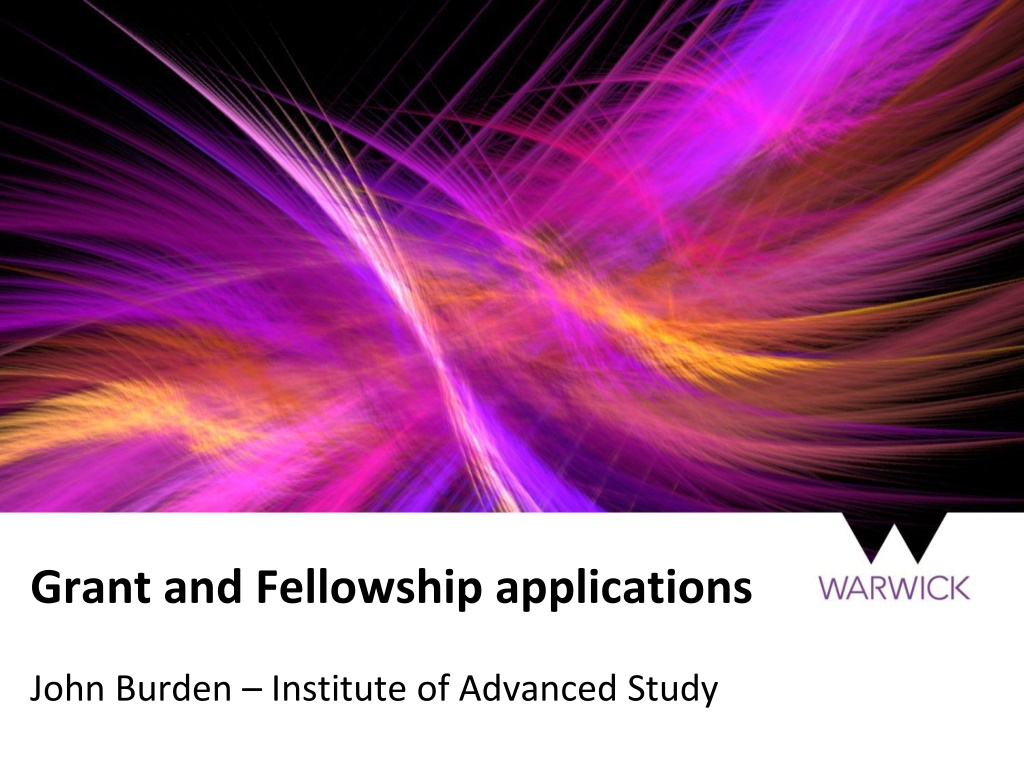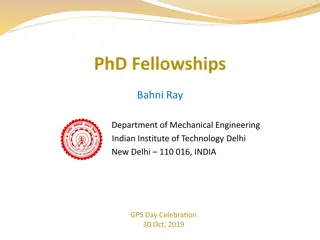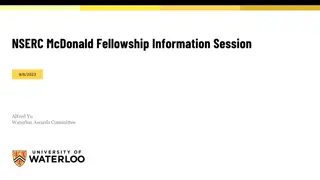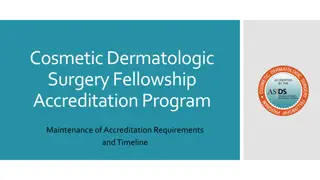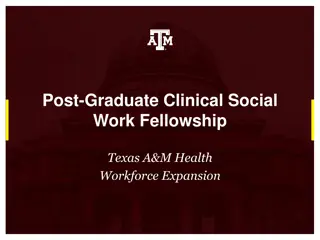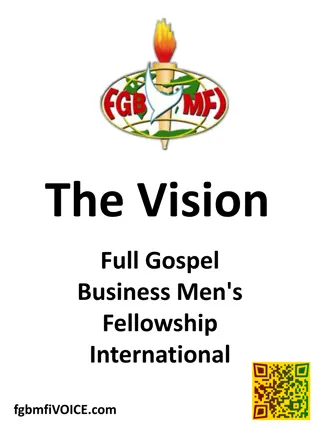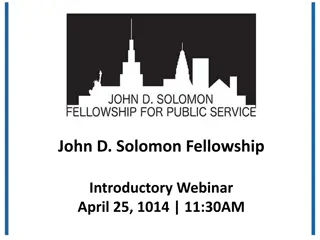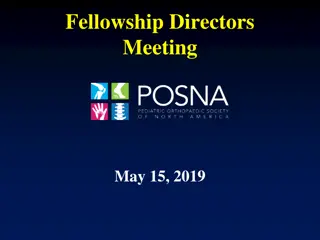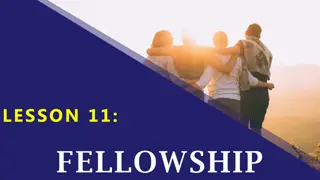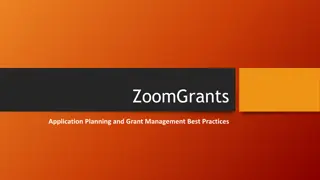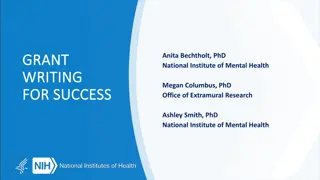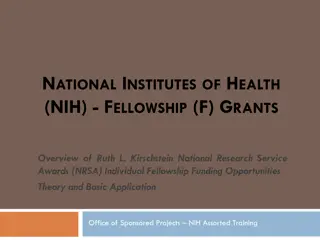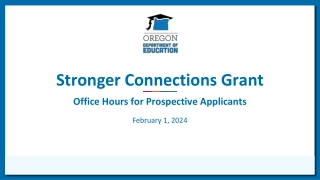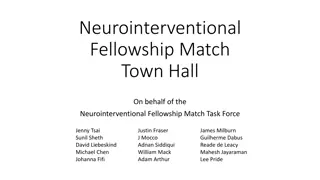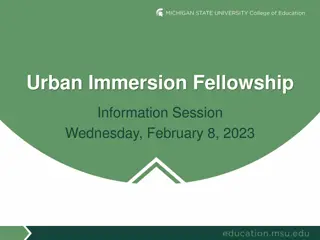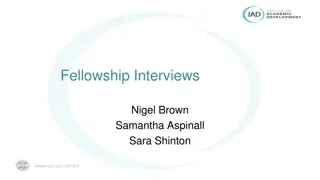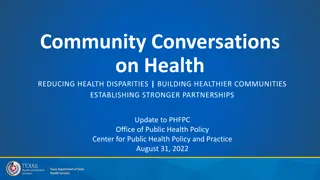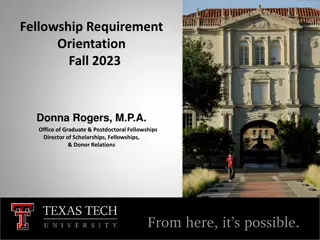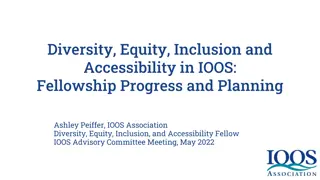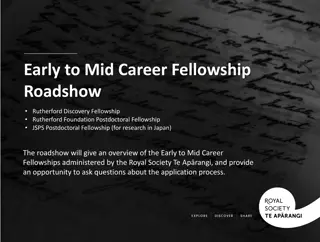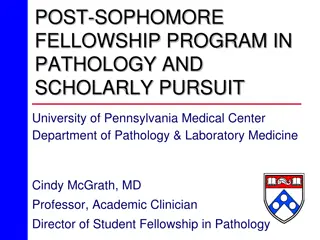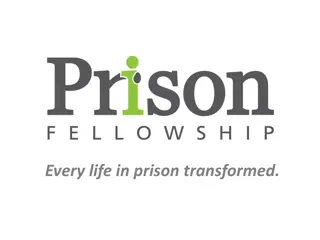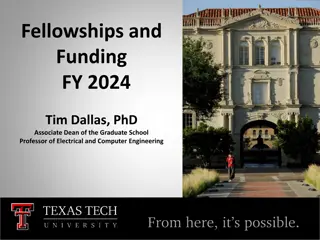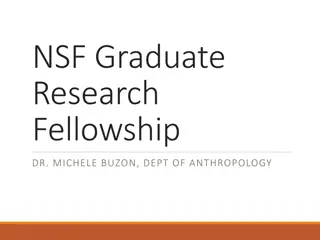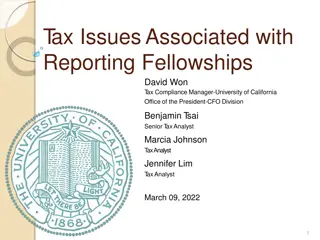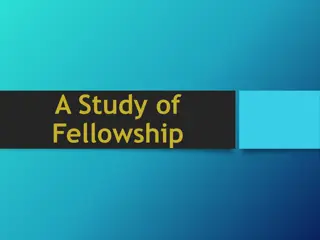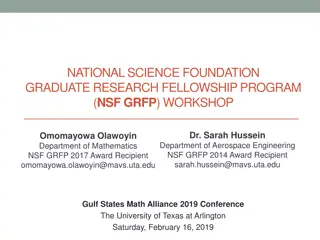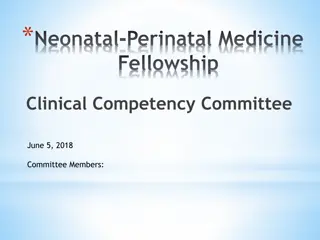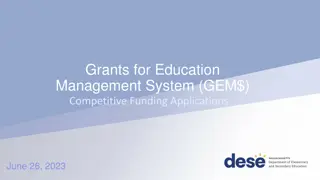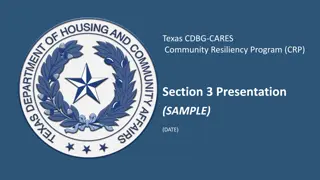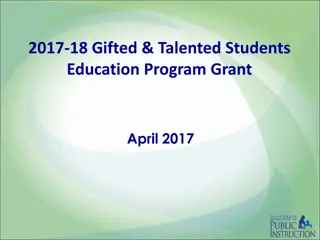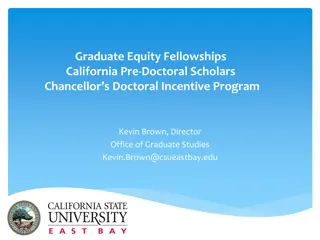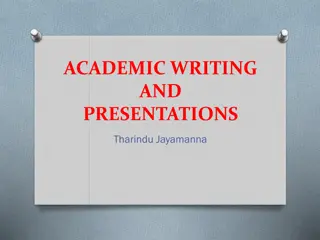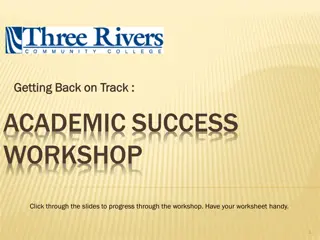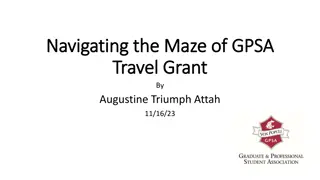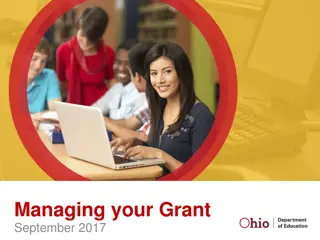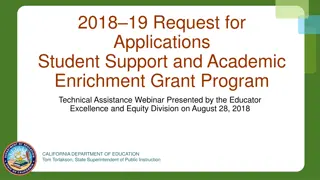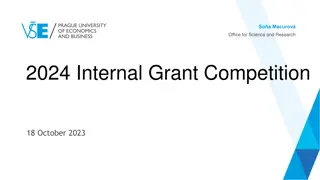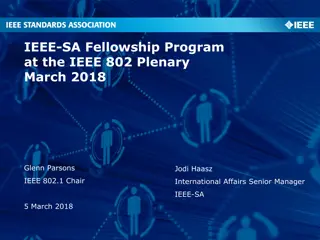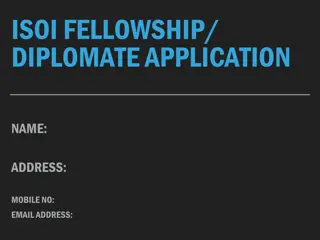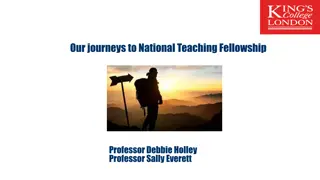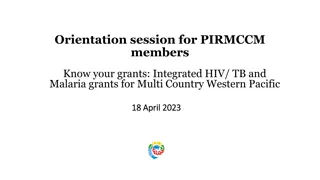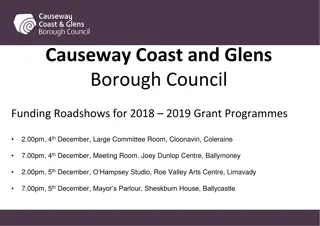Mastering Fellowship and Grant Applications for Academic Success
Understanding the nuances between fellowships and grants, showcasing independence and impact through research track records, and meeting funder priorities are key to securing competitive research opportunities. Embrace the broader focus of fellowships and strategically plan for academic advancement.
Download Presentation

Please find below an Image/Link to download the presentation.
The content on the website is provided AS IS for your information and personal use only. It may not be sold, licensed, or shared on other websites without obtaining consent from the author. Download presentation by click this link. If you encounter any issues during the download, it is possible that the publisher has removed the file from their server.
E N D
Presentation Transcript
Grant and Fellowship applications John Burden Institute of Advanced Study
Fellowship or Grant? Both focused on a piece of research Both competitive, peer reviewed Focus is very different A grant is about the research A fellowship is about the person doing the research
What is a Fellowship? A research based training role Personal award aimed at developing an academic career Limits on eligibility? Available at all stages of career PhD New post-docs Experienced post-docs Special circumstances Career breaks etc Extremely competitive 10% success rate common
A Fellowship has a different focus A fellowship is about more than the research you will do It is about how this research allows you to make the transition from researcher to academic A bigger picture than just research; Where will you be in 5 10 years time How will this Fellowship take you there? It is about the Person, Place & Project (in that order)
What are the funders are looking for? Every funder will have their own priorities but you will need to demonstrate Independence Commitment to academic career Academic leading research group in 5-10 years Outstanding research ideas Leadership potential
Demonstrate through your research track record Independence your ideas, not working for someone else Publications quantity / quality / citations/ authorship Funding collaborations, small amounts, fellowships, prizes Impact Managing staff postdoc, student, research assistant Teaching developing & delivering content Get yourself known Talks, presentations, workshops, visits, networking, letter of support Make a plan now! address any gaps, training, colleagues
Impact delivering the outcomes the funder wants Important part of a modern academic track record What is the outcome of your research, who will benefit from it and how will they get to know about it? papers, publications, conferences, books, workshops, methods, theory & application Academic: Societal: policy, public engagement, enhancing quality of life, health and creative output, environmental sustainability, social cohesion Economic: Economic competitiveness, wealth creation, commercialisation, R&D Investment
Place where you hold the fellowship is important Research Environment - Support necessary for project and developing research skills Training Environment What development opportunities, courses etc are available to support ECR development? Lab space, equipment, support staff, office space, finance, students,support for future grants Dept. commitment Ability to support research and development, previous record, independence not a free post-doc Mentors
Project Innovative new research Independent - It is yours not supervisors Based on experience and previous research record Part of the Big Picture where does it lead? Provide research training Successful outcome realistic, deliverable & within available budget Deliver the priorities of the funder Important research question Collaborators and mentors to strengthen the research
Writing a successful proposal General Guidelines Funder Documentation Read guidelines and rules and stick to them Match to funder mission & strategic priorities reflect the language Well written, detailed & clear consider the reviewers Allow sufficient time Rushed proposals show Eligibility criteria Use input from others Academics, Fellows, Peers, RIS, non-specialists Excellent research, value for money, high impact, well presented
What is in a proposal? On-line or paper application form - many sections with specific word limits, etc Case for Support - Research proposal, background, aims, methodology Costing from Research & Impact Services or host institution Justification of Resources Track Record / CV Management & Risk Research Environment Impact/Impact Plan Supporting letters
What is in a proposal? In addition you will also need: Referees/ Mentors Institutional Support/ Departmental sign off Future developments Gantt chart, equipment quotes, letters of support etc Training Programme
Training plans PhD Post Doc Academic Research Management Where do you want to be in 5/10 years time? What will you need to be able to do that job? Where are you now and what skills do you need to bridge the gap? Research skills, Management Skills, Teaching Experience Mentoring, Courses, Masters modules, University training & Development schemes Adding value
Collaborators and mentors Strengthen your application with support from external collaborators & mentors, either as a mentor, part of an advisory committee or through letter of support. Experts in field Relevant to proposed project Outcomes & Impact Outside Warwick/Other Departments Letters of support Plan ahead and build your network conferences, invited speakers, direct contact.
Sources of Funding Research Councils BBSRC, MRC, NERC, ESRC, AHRC, EPSRC Royal Society Personal Fellowships, very competitive (<10%). URF (3-8 Years Post Doc), Dorothy Hodgkin (flexible work) Leverhulme Trust Early Career Fellowship, very prestigious/competitive. Up to 5 years Post Doc. European Union Marie Sklodowska Curie Fellowships, ERC Wellcome Trust Major funder of biomedical research, range of awards for all career stages British Academy Arts & humanities Other Charities Many charities fund research specific, problem solving
Best Practice Remember your audience Answer the question Reflect the language of the funder Use diagrams, charts, figures and tables appropriately Make it readable break up text blocks Don t assume a section isn t important Seek out successful examples
Best Practice Best Practice Avoid empty statements: We have published on how different outcome measures provide complementary information. Does not convey extent of their own contribution - academic could be first author Tells me what has been done but no information to convey/substantiate the impact of the publications. Evidence to back up statements will convince reviewers
Empty Statements My research is novel The research carried out has led to novel findings, including design principals, an evaluation framework and learning behaviour patterns for social personalised adaptive eLearning. However, there are several outstanding questions that require further investigation
It all takes time Proposal Development The more time you can spend developing and refining your proposal, the better it will be. Internal Peer Review Allow time to complete formal submission processes such as internal peer review and university sign-off before submission University Sign-Off Procedures Minimum of 3 months don t leave it until the last minute 6-9 months before final decision, 1 year until start Submission
In Summary.. Start early; Build track record Establish collaborations Develop proposal with input from others Offer what the Funder wants; Fit research to funder criteria Understand the form & fill in correctly Excellent research, value for money, high impact, well presented Remember the bigger picture Career Development Training award Future Academic leader
